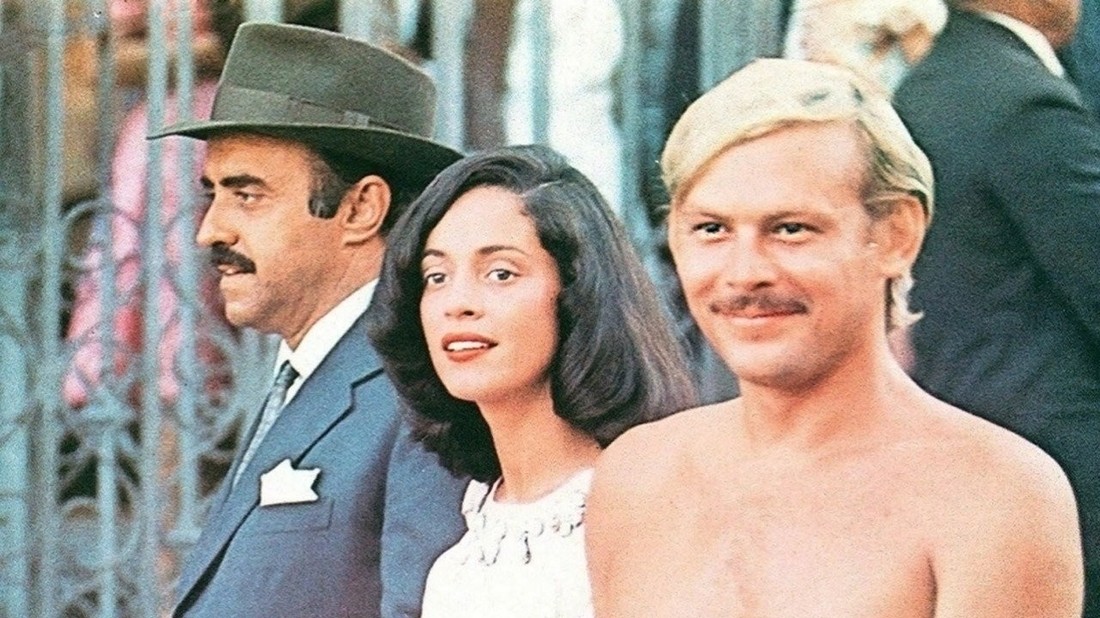It’s a shame that a lack of interest in Brazilian cinema has relegated Dona Flor and Her Two Husbands (1976) to the margins of the United States’ cinema culture despite the fact that the film was a box-office hit upon release and has been readily accessible to stream for years. If anything, the magical realist romantic comedy deserves to be widely known as the go-to date night pick for all. Made when director Bruno Barreto was only 20 years old, it launched Sônia Braga’s international career and went on to stand as the highest grossing Brazilian film in history for the next three decades. It’s easy to see why: the story of a woman whose first husband inexplicably dies, and only returns as a ghost once she’s remarried to a far more reputable man, is both fun and heart-wrenching.
The film introduces the irreverent Vadinho (José Wilker) as he dances through the streets of Bahia during a 1943 carnival. Neither the fact that he’s dressed in full drag, nor his marriage to the sweet Dona Flor (Braga), stop him from hitting on the first attractive woman he sees. Blame it on karma, or one too many nights out binge drinking, but God chooses this moment to end this womanizer’s life. And Dona Flor is the only community member sad to see Vadinho go despite his mistreatment of her when he was alive. The first hour of the film recounts their tumultuous marriage, from Vadinho spending their wedding night gambling, to their sweaty nights of passionate lovemaking, to how their arguments about money always ended up in moments of mutual understanding.
Barreto, along with co-screenwriters Eduardo Coutinho and Leopoldo Serran, successfully subvert the traditional screenplay structure by introducing the central conflict of Dona Flor and Her Two Husbands within the film’s last thirty minutes. Dona Flor’s second husband is the respectable Dr. Teodoro (Mauro Mendonça), a pharmacist who spends his free time practicing the bassoon and publicly arguing against the industrialization of medicine. (Vadinho had no such intellectual interests to speak of.) Dr. Teodoro is Vadinho’s foil, as he is both true to Dona Flor and terrible in bed. So, what’s a woman to do besides call her sexpot husband back from the dead?
Vadinho’s resurrection, the only magical realist touch in the film, is carried out so seamlessly that it feels like a perfectly normal development in its plot. Dona Flor never voices her wish for Vadinho’s return in the film, but the big smile on her face when she sees her ghostly lover naked in bed makes it clear she’d prayed for his return since his departure. The perfect guy does not exist in one person, but with a respectful, living husband and a charismatic phantom, Dona Flor is proof that a girl really can have it all.
Dona Flor and Her Two Husbands screens tonight, September 6, and on September 10 and 14, at Film at Lincoln Center as part of the series “Isso É Brasil: Cinema According to L.C. Barreto Productions.” Bruno and Lucy Barreto will be in attendance for a Q&A.



